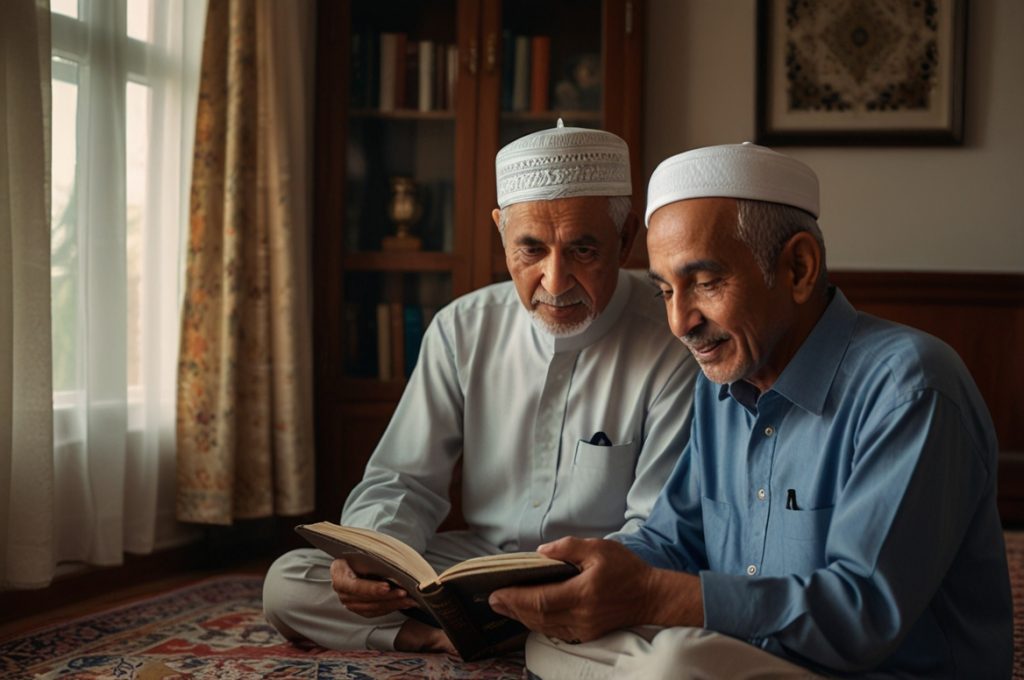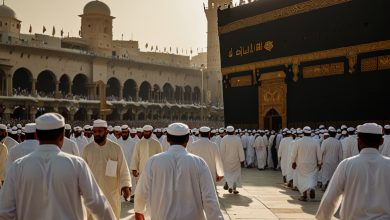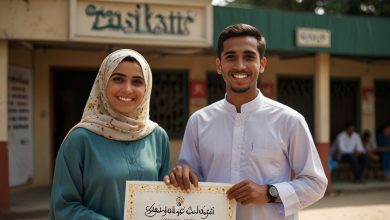Sawm – Fasting During Ramadan in Islam

Introduction
Fasting during Ramadan, known in Arabic as Sawm, is one of the Five Pillars of Islam and holds deep spiritual and cultural significance for Muslims around the world. Every year during the ninth month of the Islamic lunar calendar—Ramadan—Muslims fast from dawn until sunset. This practice is not merely a physical act of abstaining from food and drink, but a profound journey of spiritual discipline, self-restraint, and community connection.
As millions of Muslims embark on this sacred journey annually, it is essential to understand the true meaning and multifaceted impact of Sawm in Islam. This article delves into the rules, exemptions, spiritual significance, and benefits of fasting during Ramadan, aiming to offer insight for those seeking a deeper appreciation of this time-honored Islamic practice.
The Meaning of Sawm in Islam

Sawm, derived from the Arabic root word ṣawm meaning “to abstain,” refers to the act of refraining from food, drink, sexual activity, and other physical needs from dawn (Fajr) to sunset (Maghrib) during Ramadan. However, the essence of Sawm extends beyond physical deprivation. It is a form of worship designed to purify the soul, develop self-control, and draw believers closer to Allah (God).
As stated in the Qur’an:
“O you who have believed, decreed upon you is fasting as it was decreed upon those before you that you may become righteous.”
(Qur’an, 2:183)
This verse highlights the primary objective of fasting: taqwa, or God-consciousness. Fasting is thus not only an individual obligation but also a communal act of devotion and solidarity.
Rules and Exemptions of Ramadan Fasting

Fasting during Ramadan is obligatory for all adult Muslims who are physically and mentally able. The fast begins with a pre-dawn meal called suhoor and ends with iftar, the meal to break the fast at sunset. During this time, Muslims must abstain from:
- Eating or drinking
- Smoking
- Sexual relations
- Sinful speech or behavior (e.g., lying, gossiping)
Intention (niyyah) is also crucial; one must consciously intend to fast each day for the sake of Allah.
However, Islam is a religion of mercy and understanding, and certain individuals are exempt from fasting, including:
- Children who have not reached puberty
- The elderly and chronically ill
- Pregnant and breastfeeding women
- Travelers
- Women during menstruation or postnatal bleeding
Those who miss fasts due to valid reasons are required to make up the missed days later or, if unable, provide fidya (a charitable donation to feed the poor).
Spiritual Goals of Fasting During Ramadan

The core purpose of Sawm in Islam is spiritual elevation. By refraining from basic physical needs, Muslims are reminded of their dependence on Allah and the transient nature of worldly pleasures. This self-denial cultivates humility, empathy, and gratitude.
1. Strengthening Taqwa (God-Consciousness):
The ultimate goal of Ramadan fasting is to become more aware of Allah in daily life. The discipline required helps Muslims guard their thoughts, words, and actions.
2. Developing Patience and Self-Control:
Fasting teaches endurance, not just from food but from anger, impatience, and temptation. It is a time to break bad habits and develop inner peace.
3. Engaging in Worship and Reflection:
Ramadan is a time of increased prayer, Qur’an recitation, and spiritual reflection. Nightly prayers (Tarawih), especially, create a collective spiritual experience that strengthens faith and unity.
Physical and Communal Benefits of Fasting

Though Sawm is primarily a spiritual act, it also brings numerous physical and social benefits.
Physical Benefits:
- Detoxification and Rest for the Digestive System: Intermittent fasting allows the body to remove toxins and reset its digestive rhythm.
- Improved Metabolism and Weight Regulation: For many, fasting contributes to better metabolism and healthier eating patterns.
- Mental Clarity and Focus: Many fasters report increased mental sharpness and emotional stability during Ramadan.
Communal and Social Benefits:
- Empathy for the Poor: Fasting provides a direct experience of hunger and thirst, increasing compassion and motivating charitable acts.
- Strengthening Community Bonds: Iftar gatherings, communal prayers, and collective worship bring people together, reinforcing social ties and unity.
- Promotion of Equality: During Ramadan, all Muslims—regardless of status—observe the same practice, fostering a sense of brotherhood and humility.
Conclusion
Fasting during Ramadan, or Sawm, is a cornerstone of Islamic worship and a profound exercise in spiritual, physical, and social refinement. It is more than abstaining from food—it is a means to purify the soul, discipline the body, and connect with both God and fellow human beings. Through the sacred practice of Ramadan fasting, Muslims around the world reaffirm their commitment to faith, compassion, and community.
Whether you are a curious observer, a student of religion, or someone seeking personal growth, the principles behind Sawm in Islam offer timeless lessons in discipline, empathy, and spiritual clarity. As one of the Five Pillars of Islam, it continues to guide millions toward a more conscious, connected, and compassionate way of life.




